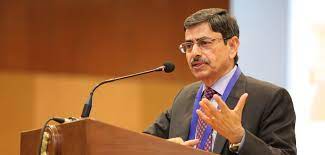Needless needling : On Governor-government ties in Tamil Nadu
The ties between the Governor and the government in Tamil Nadu must be reset
The presentation of a memorandum against Tamil Nadu Governor R.N. Ravi by MPs of the ruling DMK-led Secular Progressive Alliance to President Droupadi Murmu is yet another reflection of the fractured relationship between the DMK regime and the Governor. Irrespective of their differences, this unfortunate development could have been avoided with some effort and reasoning on both sides. The memorandum has slammed the Governor’s way of functioning, “openly contradicting its [Tamil Nadu government’s] policy in public and unduly delaying assent to Bills”. In an account of 20 Bills passed by the State Assembly and pending with the Governor, the memorandum, expectedly, dealt with Mr. Ravi’s approach towards the TN Admission to UG Medical Degree Courses Bill 2021, also called NEET [National Eligibility-cum-Entrance Test] exemption Bill, which is now awaiting presidential assent. What the Alliance argued was that Mr. Ravi, instead of forwarding the Bill to the President, even in the first instance had chosen to return it to the Assembly, “which is ultra-vires of the powers conferred on a Governor”. But quite needlessly, the joint statement also took strong exception to the Governor’s public statements on matters unrelated to governance such as Sanatana Dharma, Dravidian heritage, Tamil pride and Thirukkural, a Tamil classical work. Ever since he assumed charge in September 2021, Mr. Ravi, a former Nagaland Governor, has earned the DMK’s wrath over the NEET exemption Bill. In addition, his presenting himself as a strong advocate of the three-language formula and the National Education Policy (NEP) has not been palatable to many parties in the State.
While it is perfectly legitimate to have contrarian views in a democratic set up, every constitutional authority should conduct himself or herself in a manner that adheres to the letter and spirit of the Constitution. Notwithstanding the correctness or otherwise of his position, the Governor should not be seen as one needlessly provoking a duly-elected government to confront him on one issue or the other. He should walk the extra mile to establish that he stays within constitutional limits. Given his non-political background, Mr. Ravi is better placed than many of his gubernatorial counterparts to present himself as being fair and objective. Meanwhile, critics including those from the ruling party should refrain from reacting adversely to every single observation as their responses may create an impression of their wanting to be in a state of perpetual conflict with the Governor. After all, the ties between the institution of Governor and the State government rest and flourish on understanding and mutual respect. Otherwise, Tamil Nadu will be the loser, undermining governance
